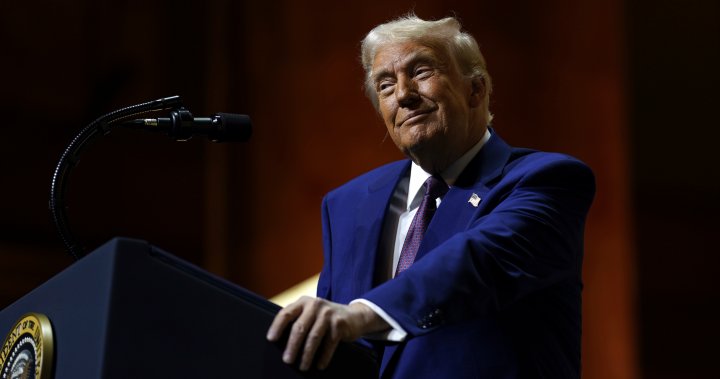Canada
Could Canada legally challenge Trump’s tariffs? What to know

The situation involving President Trump’s threatened tariffs on Canadian goods under the CUSMA trade agreement is complex and multifaceted. Here’s a structured summary of the key points and implications:
-
Challenging Tariffs Under CUSMA: Canada has the option to challenge the tariffs through the CUSMA dispute resolution mechanisms. This process typically involves consultations and a dispute settlement panel, which can take around a year to reach a decision. However, the slow pace of this process may leave Canadian businesses vulnerable to immediate tariffs.
-
US Compliance and Track Record: The effectiveness of challenging the tariffs hinges on the US’s willingness to comply with any rulings. Historical precedents, such as the US ignoring WTO rulings on metal tariffs, suggest that even if Canada wins a challenge, the US might not comply, potentially rendering the challenge ineffectual.
-
Counter-Tariffs and Treaty Compliance: While Canada’s Prime Minister has hinted at retaliatory measures, doing so before the dispute process concludes could violate CUSMA. This creates a dilemma between immediate retaliation to protect Canadian interests and adhering to legal processes to maintain the treaty’s integrity.
-
Implications of US Non-Participation: If the US refuses to engage with the dispute process, it could signal an abandonment of CUSMA, with far-reaching consequences beyond the tariffs, potentially destabilizing broader trade relations and cooperation.
-
National Security Reasoning: The US’s use of national security concerns to justify tariffs is questioned, with critics labeling it a weak excuse. While technically within CUSMA’s framework, this reasoning may be seen as a stretch, undermining the spirit of the agreement.
- Past Disputes and Future Prospects: The history of trade disputes, such as softwood lumber, indicates ongoing challenges. The current tariffs, being broad and severe, may be harder to resolve, potentially leading to prolonged trade tensions and undermining the agreement’s effectiveness.
In conclusion, while Canada can challenge the tariffs under CUSMA, the process is slow, and US non-compliance could lead to prolonged disputes. The situation underscores the balance between legal recourse and immediate economic protection, with significant implications for the future of US-Canada trade relations.